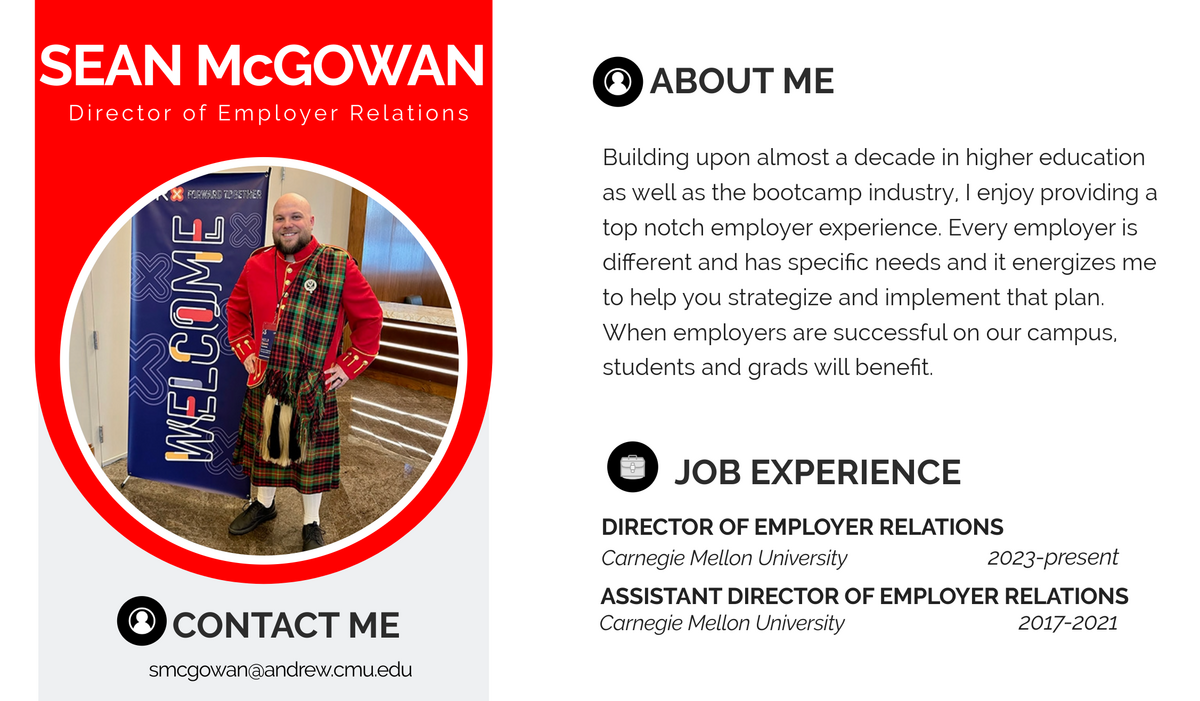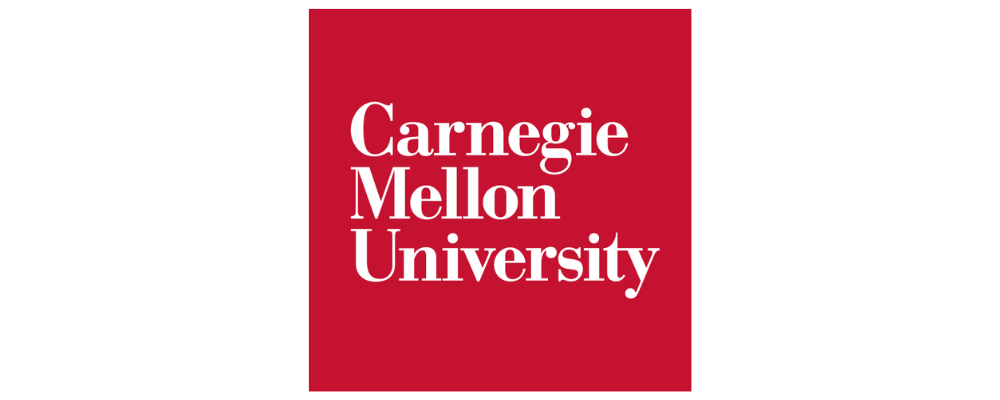Artificial intelligence rapidly changed the ways that companies screen applicants for positions, and now job seekers themselves use generative AI to navigate this evolving career landscape.
According to Sean McGowan, director of employer relations at Carnegie Mellon University’s Career and Professional Development Center(opens in new window) (CPDC), generative AI can be a speedy and powerful tool in the job search process — when used ethically and responsibly — yet traditional approaches like professional networking have never been more important.
In the following Q&A, McGowan discusses the uses, benefits and challenges of generative AI in the job-hunting process.

How are employers and job seekers using generative AI to seek employment?
In today’s job market, both employers and job seekers are increasingly leveraging generative AI to enhance their employment strategies. Human resources departments and recruiters are utilizing AI-powered applicant tracking systems (ATS) to streamline various processes such as resume screening, bulk messaging and candidate ranking. These systems are designed to efficiently handle the large volumes of applications, identify the most suitable candidates and manage communication at scale.
On the other hand, job seekers are also turning to AI tools like ChatGPT and others to gain an edge in the competitive job market to apply in bulk. This has caused the number of job applications to skyrocket due to the increased speed and volume these tools provide. This is not always a recipe for success, since folks are leaning on technology, instead of putting effort into researching and learning how to network. Meetups, conferences and finding ways to connect with family, friends or alumni are more important than ever. The “spray and pray” resume strategy is not effective and recruiters are reverting to their network and referrals to identify the quality candidates.
How is Carnegie Mellon preparing students as the job application process changes?
CMU is at the forefront of integrating artificial intelligence into its educational and career preparation programs. As a leader in AI, CMU recognizes the profound impact this technology has on the future of work and talent acquisition. This new technology is providing a disruption at the speed of light!
Due to this rapid changing job market and new technologies, CMU is dedicated to ensuring that its students are well-prepared to navigate this evolving landscape. The university’s Career and Professional Development Center is actively working to understand these changes and their implications for job seekers and employers alike.
How are resumes being screened using AI?
Carnegie Mellon still finds a great deal of value in human intelligence in recruiting, so the university does not leverage AI to screen job applicants, limiting AI use to assist with job postings and sourcing. For CMU, human intelligence is still at the forefront of talent acquisition.
That isn’t widely the case with other organizations as most resumes — 75% — don’t make it to a human. Generative AI is being used to write job posts, and source, screen and sift through jobs. This is being done in days, or even hours, versus the weeks it used to take.
To address the issue of “ghosting” — where employers stop communicating with applicants — AI is used to send automated updates and messages. This ensures that candidates are kept informed about their application status, enhancing their experience even if they do not progress to the next stage. Candidate experience is still a top priority.
Some companies utilize AI-driven one-way interview platforms (such as HireVue) for initial candidate screenings. In these platforms, candidates record their responses to pre-set questions, which AI then analyzes for various factors such as language use, tone and relevant skills.
I’ve heard students say that this feels like sending your resume into a black hole. You don’t hear anything, or if you do hear anything, you can tell that it’s not a human. Candidates are seeking a personal experience.
Are there also concerns about bias in these AI systems?
Absolutely. One of the potential issues with these systems is bias and discrimination. One example: Let’s say you put the word softball on your resume(opens in new window). There’s been instances where you can see an AI determine that softball versus baseball implies a candidate is female over male. The system was able to understand gender just based on a single word.
How can students use AI to stand out when applying for jobs?
CPDC created a website(opens in new window) for guidance for AI.
We’ve partnered with platforms like Big Interview, an AI feedback and coaching tool for mock interviews which helps you with eye contact, vocabulary, tone and rate of speech. We also have Vmock, which is instant resume feedback optimized to give resumes a score to show how likely it is to resonate with an employer.
Our main system here at CMU is Handshake, which is our job database. Handshake will recommend certain jobs to a user based on the companies we guide to that platform.
How should students use large language models to improve a resume?
We can advise how to use LLMs ethically.
Basically, yes, you can use LLMs, but you should carefully review your materials before you submit them. At the end of the day, it has your name at the top, and you have to answer to that.
If only 25% of applications are being seen by a real human, what other strategies will aid in a job search?
When you think about career services and really what we’re here to do, it’s to teach people how to fish versus giving them a fish.
At this point we’re trying to help these students not just find a job for right now, but to train them on important skills that they will need.
We know how to talk to people, and we know how to help you stand out. And that’s really the power of this academic environment. Now that you’re part of this network at Carnegie Mellon, we can help you with who you know. We’re bringing companies to campus. We have an outstanding alumni population.
We’re trying to help students increase who they know. As I talk to employers with these increased application pools, they’re looking at referrals. They’re looking at those trusted networks, and we, as employer relations, are a trusted network.
Are you seeing AI replace jobs?
Many of the companies that come through here still don’t know how to hire AI to do a job, because it happened so quickly. In our jobs, we’re not seeing scores and scores of AI engineering roles. But we do still see software development, data science and machine learning roles. And those are really the building blocks for what the AI market has become and will continue to be.
We’ve also seen a rise in computer science programs over the years. While more schools are offering computer science degrees, our place in that ranking has remained at the top.
When companies are deciding who to hire, especially when it’s competitive, Carnegie Mellon graduates are miles ahead of anyone else because of the connections, the network and the team in our office. In a competitive market, school ranking and the community and support network is more important than ever.
“Carnegie Mellon University is a private research university in Pittsburgh, Pennsylvania. The institution was originally established in 1900 by Andrew Carnegie as the Carnegie Technical School. In 1912, it became the Carnegie Institute of Technology and began granting four-year degrees.”
Please visit the firm link to site


